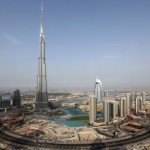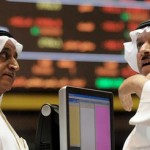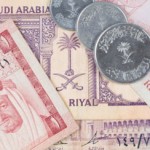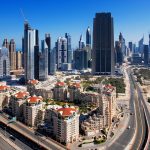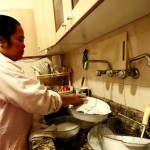Saudi Market Opening May Help Neighbors
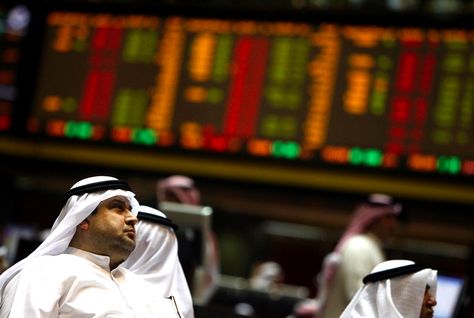
Other Arab countries—including Qatar, Kuwait and the United Arab Emirates—are likely to be among the major beneficiaries
When Saudi Arabia opens up its stock market to foreign investors Monday, the loudest cheers may come from the Persian Gulf country’s neighbors.
The Saudi market’s international debut is much anticipated by overseas investors who see it as one the biggest markets that has remained off limits. But other Arab countries—including Qatar, Kuwait and the United Arab Emirates—are likely to be among the major beneficiaries, as it will draw investor attention to the region.
Typically, big international investors haven’t shown much interest in the region since its biggest market was closed to them, said Sachin Mohindra, a portfolio manager at Abu Dhabi-based Invest AD who manages a roughly $50 million fund focused on the six-nation Gulf Cooperation Council. Invest AD manages in excess of $350 million in assets.
“The opening up of the Saudi market will change this trend and positively impact other Gulf markets as global interest increases,” he added.
The Gulf countries, whose economies are heavily dependent on oil, are facing their toughest test in years, with oil prices having tumbled by almost half in the past year and expected to remain low amid a glut of supply and weak demand.
Some Gulf leaders hope that attracting more foreign investment into local companies will help them diversify their economies away from a dependence on oil, something that the International Monetary Fund has advocated. The IMF says diversification will help establish an oil-independent economy in the region that will be needed in the future if oil revenues dwindle further.
“Saudi Arabia’s market opening will help return the focus on the region’s capital markets,” said Mohammed Ali Yasin, the managing director at U.A.E.-based NBAD Securities.
Saudi Arabia’s market capitalization is bigger than all the other Gulf markets put together. The market value of its largest listed company, petrochemicals giant Saudi Basic Industries Corp., or Sabic, is bigger than the entire market of public companies in Oman and Bahrain combined.
The Saudi market also lists a range of companies from sectors including financial services, industrials, telecommunications, food, hospitality and retail—far more diverse than the other Gulf markets.
“Saudi is a big deal,” said Rebecca McVittie, investment director at London-based Fidelity Investments, which is applying for a license to make direct investments in the market and gain exposure to it for the first time. “There’s definitely a good deal of momentum.”
Some investors say the region has decent growth prospects despite the current oil-price slump.
“We continue to see highly favorable demographic profiles for the region,” said GhadirAbu Leil-Cooper, head of frontier-markets equities at Baring Asset Management.
“We are finding many opportunities in real-estate developers, consumption and service provision, such as in education and health care, as well as in religious tourism,” she said. Baring says it expects private-health-care and education and training companies to be among the best performers in the region.
Saudi Arabia’s market is up 16% in 2015, and valuations are looking rich at nearly five-year highs, said Credit Suisse.
Credit Suisse also noted Saudi shares are trading at a multiple of about 16.8 times forecast earnings, compared with about 12.7 times for emerging markets globally.
“The Saudi market could continue to trade at lofty levels,” said Tarek Fadlallah, chief executive officer at Nomura Asset Management Middle East. But “Investors might find better bargains elsewhere in the region,” he added.
The Gulf states have charted different paths in an effort to boost the non-oil economy.
Dubai, which is part of the U.A.E. and has limited oil reserves, has transformed itself into a regional hub for tourism and trade, creating some world-class companies such as Emirates Airline and global ports operator DP World to further its growth ambitions. Its real-estate market also has attracted foreign money, in part because it is seen as relatively safe and open to foreigners compared with some other parts of the region.
Abu Dhabi, also part of the U.A.E., and Qatar have followed the so-called “Dubai model”, using vast reserves of oil-and-gas funds to bankroll forays into other sectors. Both have built global airlines and made efforts to attract more trade and tourists.
Foreign direct investment was sluggish in the Gulf countries last year, according to the United Nations Conference on Trade and Development. West Asia, which includes the Gulf countries, saw FDI inflows drop by 4% to $44 billion in 2014, compared with an 8% decline globally, Unctad estimated.
Jason Tuvey, a Middle East economist at London-based Capital Economics, said Saudi Arabia’s neighbors may benefit from more than just foreigners buying local shares of listed companies.
“On the business side of things, Dubai could be one of the biggest beneficiaries, particularly if investors use the emirate as a hub for their activity in Saudi financial markets,” he noted.
Dubai has a well-functioning financial center that is already home to some of the biggest investment-related firms globally. The emirate offers an easier lifestyle and more freedom than some of its Gulf peers—Saudi Arabia, for example, doesn’t allow women to drive and bans many forms of entertainment such as movies and concerts. That makes Dubai an attractive option for expats as they tap regional opportunities.
Qatar and the U.A.E. were given emerging-market status last year by index compiler MSCI Inc., allowing global fund managers tracking such benchmarks to buy stocks from those countries. The impact was positive, but the effect was somewhat short-lived.
Source: WSJ – Saudi Market Opening May Help Neighbors









